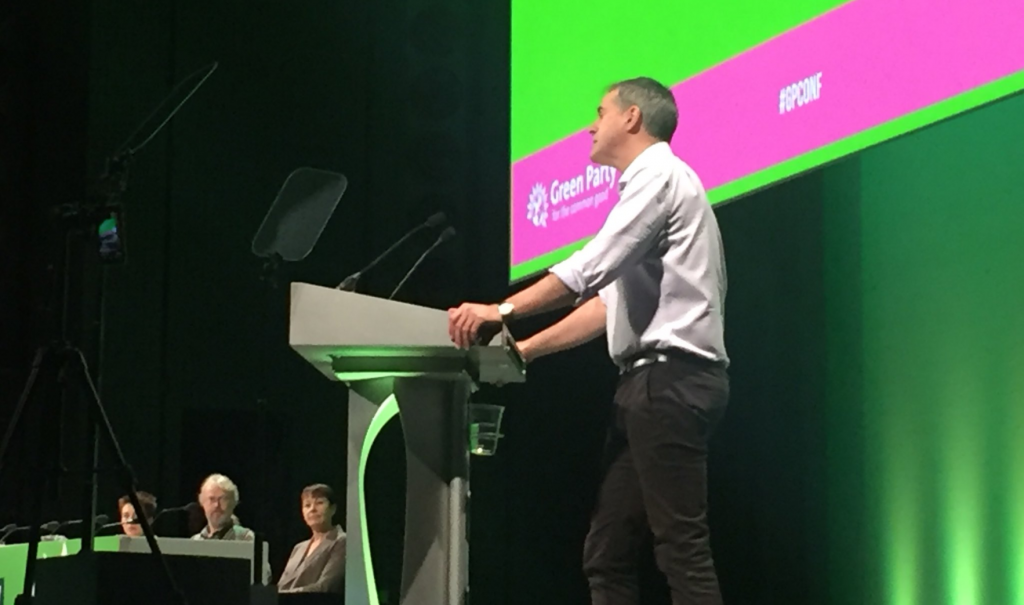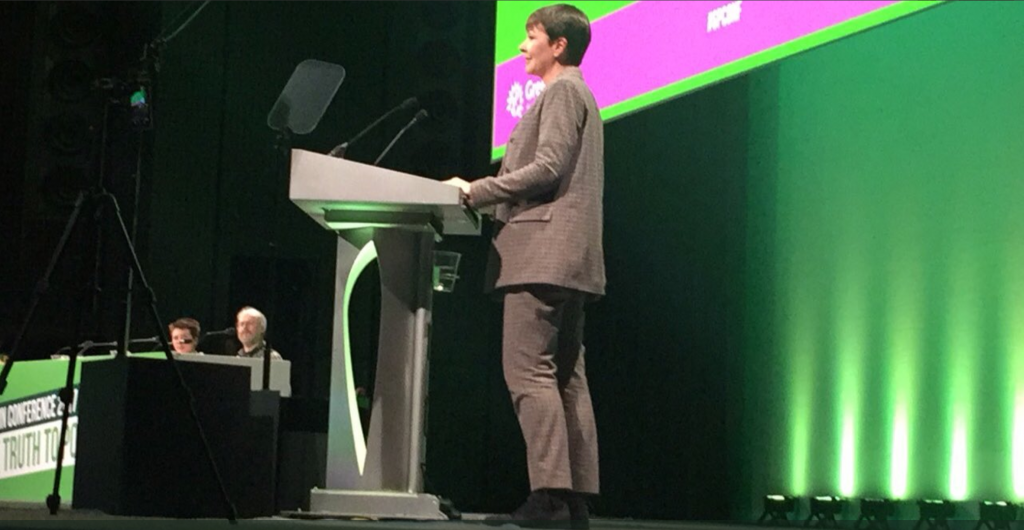What next? Thoughts on the Green Party Conference
“Confusion, opportunity and excitement.”
The RSPB’s Ruth Davis used these words on a panel about Brexit and the environment, describing the strange situation that we in the UK currently find ourselves in, but they also apply to the Green Party Conference. This Autumn, the Party is at a crossroads, puzzling over which road to take following the successive sharp turns of the 2015 Green Surge, last year’s Brexit vote, and the rise of Jeremy Corbyn.
The mood, at least for the two days I was able to attend, was an odd blend of disappointment and optimism. I ran into people I’d campaigned with in Bristol West – where the great hope of a second Green MP was cruelly dashed – and shared stories of election night tears. But I also felt the tentative sparks of that same hope that had drawn me to the Green Party in the first place. There was confusion about where to go next, but also opportunity and excitement somewhere on the horizon.

The real question for the Green Party right now is how to rebuild our support. After the encouraging results in 2015, this year’s snap general election saw the Green vote share slashed. Data shared by CEO Nick Martin at a session on political strategy confirmed suspicions that this was largely caused by voters on the left decamping en-masse to Corbyn’s Labour – perhaps partly influenced by the progressive alliance agenda that was pushed by many Greens. Though the principal aim of progressive alliances was to build support for proportional representation in Parliament, in the public imagination they became purely about keeping the Tories out. An understandable aim, but one that’s hit the Greens hard.
While there were many different ideas about how to approach political strategy going forward, some of them conflicting, an emerging theme was that we as Greens need to pursue new, distinctive ideas. Yes, we share some common ground with Labour under Corbyn, but there are key areas where our policies diverge: nuclear power, Brexit, airport expansion, the future of work and the economy. And the Labour Party is more than just one man. Corbyn might be attempting to shift Labour back towards the left, but the experiences of Green councillors – especially Alison Teal, who’s been continually attacked by the majority Labour council in Sheffield for protesting against tree felling in the city – show that many elements of the Party are still pursuing a firmly neoliberal agenda.
It was inspiring to hear from Alison and other Green councillors about their experiences of direct action, demonstrating the crucial importance of local as well as national representation, and reminding us that the Green Party is a grassroots campaigning organisation as well as a political entity. Now more than ever our voices are needed both in government (national and local) and on the front line of activist campaigns. Whatever Michael Gove might say, the Green Party is still the only political party truly standing up for the planet. That’s one area where we can clearly stake out our difference from the political mainstream.

Elsewhere at Conference, the looming reality of Brexit dominated much discussion. In her speech on Sunday, Green MEP Molly Scott Cato outlined a chilling vision of the post-Brexit future, echoed later the same day by Professor Tim Lang’s warnings of a national food security crisis. Our exit from the EU – particularly as approached by the current government – is likely to leave the country poorer, hungrier and with fewer environmental regulations. As several speakers made clear, it’s up to Greens to do everything we can to fight against that future.
This is a crucial time for the Green Party. Nowhere was this clearer than in the plenary sessions I attended, in which there was passionate (and sometimes fraught) discussion about the Party’s ongoing process of internal review and reorganisation. The new holistic review that was voted through on Sunday is unlikely to be a panacea, but we’re right to be rethinking what we do. The turbulent present moment is an opportunity, and it’s likely to bring as much excitement as perplexity.




Leave a Reply